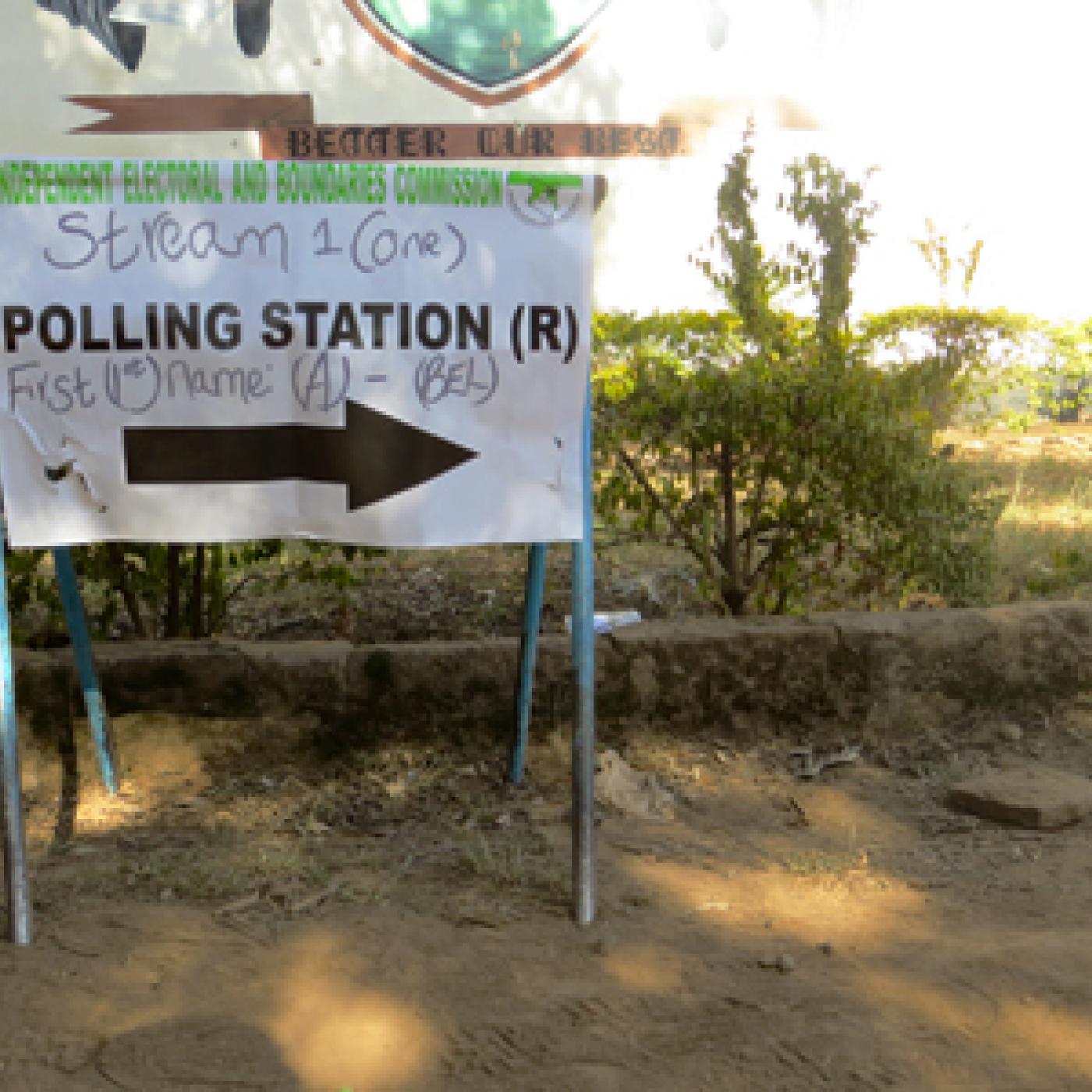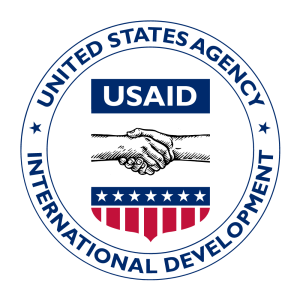
Kenya Electoral Assistance Program (KEAP)
From 2016 to 2018, the Kenya Electoral Assistance Program (KEAP) supported Kenyans and government institutions in holding transparent, credible, inclusive and peaceful elections. KEAP focused on building upon and strengthening the sustainability of previous electoral development gains and increasing the participation of women and youth. The International Foundation for Electoral Systems (IFES) implemented KEAP with partners, National Democratic Institute (NDI) and Act Change Transform (Act!). IFES also partnered with Healthcare Assistance Kenya, Uraia Trust and United Disabled Persons of Kenya, and provided innovation grants to six local civil society partners.
KEAP implemented targeted and mutually reinforcing activities which:
- Built on the achievements of previous election programming and leveraging lessons learned through external evaluations to address remaining gaps in the electoral process and enhance the 2017 elections.
- Developed innovative solutions and leveraging local technology capacity to strengthen linkages among electoral stakeholders, including the public, and enhance the accessibility and utility of election-related data and processes.
- Invested in the capacity development of local institutions and local civil society partners to reduce future dependence on foreign technical assistance and to improve levels of accountability and transparency in the electoral process.
- Elevated inclusion as essential to a fair and peaceful election by supporting initiatives that promote participation of women, young men and persons with disabilities and mainstreaming inclusion throughout program design.
- Contributed to peaceful elections through support to inclusive, Kenyan-driven conflict mitigation mechanisms at the national and local levels.
Key Outcomes
Strengthened institutional capacity of the IEBC
IFES provided technical support to the IEBC on election administration, including training on the Electoral Code of Conduct related to electoral dispute resolution (EDR); mass voter registration; operational planning, logistics, and security; elections technology, such as preparation of an ICT project plan; and lessons learned, including support for the IEBC Post-Election Evaluation exercise.
Increased the number of women running for office
Of the women who ran for office after participating in a KEAP program, 17 percent were either elected or gained a nominated position from their party. Amani National Congress Executive Director, Margaret Ndanyi noted to KEAP that its program had helped the party to increase the number of women who run in the 2017 elections compared to 2013 and that women from the trainings were better equipped to run for office.
Strengthened the skills of women legislators
Orientation sessions and follow-on capacity building for women legislators has helped women with leadership roles in their county legislature. In 25 counties, KEAP partner NDI and its partners assisted the women’s caucus to organize, begin registering, or formalize their leadership.
Supported consensus building and conflict mediation for peaceful elections
At the national level, KEAP facilitated dialogue that broke down a political stalemate, and paved the way for negotiations for a peaceful environment for the elections. At the county level, KEAP partner Act! held a total of 309 consensus building and conflict mediation forums. Through these engagements, 75 conflicts were mediated and fully resolved, some of which resulted in signing of peace agreements in Mombasa, Nairobi, Kwale, Isiolo, Kilifi and Garissa.
Prevention of Violence against Women in Elections
KEAP was committed to improving women’s political participation in the 2017 electoral process and beyond by making the narratives of women experiencing election violence in their homes, political arenas, and public spaces more visible. Through the #BetterThanThis campaign, KEAP reiterated that Kenya can do better than the current state of violence against women in electoral process, releasing videos, inspirational images and posters to encourage women’s participation in the electoral process. To ensure survivors of violence can access critical services, KEAP also implemented the country’s first-ever nationwide 24-hour gender-based violence (GBV) helpline.
Enhanced electoral dispute resolution mechanisms
IFES provided assistance to the IEBC and the Political Parties Dispute Tribunal (PPDT) to develop election dispute resolution rules of procedure and to outline roles and responsibilities, as well as supported the PPDT to implement an election dispute resolution case management system.
Improved targeted voter education, especially for women, youth, and persons with disabilities
IFES worked with the IEBC to establish a long-term voter education strategy before, during and after the 2017 elections to build public trust in the electoral process. This assistance included peace messaging campaigns targeting conflict prone areas and public outreach activities targeting women, youth, and other traditionally marginalized groups. IFES conducted national non-partisan public opinion surveys before and after the elections as well as a digital audit/social listening exercise on social media campaigns to inform the development of forward-looking communication strategies of the IEBC.
Election Technology
KEAP strengthened the IEBC’s management and organizational structures through integration of appropriate technologies. IFES’ advocacy efforts in Kenya contributed to the formation of the Election Technology Advisory Committee (ETAC), a broad-based group representing political parties, civil society, private sector, and international experts who served a dual role of guiding election technology decisions and helping to develop strategies to reach specific constituent groups. KEAP worked with the IEBC’s ICT Directorate to provide technical support in planning and implementation of ICT. KEAP also supported the IEBC in the design, development, testing, and implementation an e-learning platform to train IEBC officers on the electoral process and monitor their comprehension level. The platform covered training materials and operational manuals on the electoral process, including electoral legal framework, polling procedures, and comprehensive test-related quizzes and exams, as well as a standardized assessment for presiding officers, their deputies, and polling clerks. It also included videos on polling procedures and short video clips that can be used as mobile phone applications.
Post-Election Evaluations
After the 2017 elections, IFES conducted a rigorous Electoral Process Diagnostic (EPD) to assess IEBC performance and determine future areas of institutional improvement. The EPD is an IFES-specific instrument that evaluates EMB management capacity, voter education, voter registration, party and candidate registration and polling day operations along five key electoral principles: transparencyt, sustainability, inclusiveness, impartiality and competency. This exercise identified gaps and facilitated the incorporation of recommendations into the post-election reform agenda.
Supporting constructive review of the election, IFES also provided support to the IEBC and other stakeholders during the post-election evaluation. KEAP facilitated evaluation workshops with representatives from all 47 counties, which ultimately resulted in recommendations to be incorporated into the IEBC’s 5-year strategic plan (2019-2023). In addition, KEAP also supported the IEBC in holding stakeholder engagement meetings with political parties which allowed them to interrogate the electoral process and discuss electoral experiences across party lines. KEAP supported the development of the final evaluation report, which was released in February 2019.
Youth Vote
During the 2017 electoral period in Kenya, IFES conducted public opinion survey studies both before and after the elections to inform local partners’ design of voter education campaigns. The pre-election assessment identified youth as the strategic target audience. Based on this evidence-based research, IFES provided technical and financial assistance to a variety of local organizations to develop and implement dynamic initiatives aimed at increasing youth participation in the electoral process. A centerpiece of this campaign is the Youth Vote (YVOTE) initiative. Utilizing social media messaging reinforced through in-person activities, YVOTE educated, engaged and motivated young people to participate actively and peacefully in the 2017 elections. At the end of the campaign period, the face-to-face activities reached over 100,000 people, and the digital campaign reached over one million.
IFES support supported the formation of a Youth Coordinating Committee (YCC) at IEBC, under the Voter Education Department, to inform country-wide youth initiatives. The YCC was created to mainstream youth CSO leaders into IEBC voter education outreach activities. Due to IEBC’s strengthened focus on youth engagement, a number of youth-focused CSOs were accredited as voter education providers.
Zero Tolerance for Hate Speech Campaign
Given the prevalence of hate speech in Kenya during elections, KEAP launched the Zero Tolerance for Hate Speech campaign to discourage hate speech, hold perpetrators accountable, and generate public commitment to non-violence through signing of a peace pledge during the 2017 general elections. KEAP designed a digital public awareness campaign with messages targeting potential perpetrators and mobilizable opponents using digital forensic analysis around hate speech propagation in social media, and working with communication technology specialists and legal advisors. Analytic insights informed the campaign design, message development and target audiences. The campaign developed nuanced messaging and peaceful participation motivators, such as sense of nationhood to create pride and unity.
Conflict Prevention and Mediation through Local Structures
Based on conflict analyses, such as conflict hotspot mapping, KEAP implemented conflict prevention and mediation interventions through existing local structures in thirteen counties across Kenya. This initiative strengthened the capacity of local peace structures, including members representing civil society, county administration, government peace monitors, IEBC, religious communities, women and youth leaders as well as community elders, to mediate electoral conflicts. Through targeted coordination of conflict mitigation efforts in the electoral period, they successfully reached local communities using outreach strategies most suited to those specific communities. To facilitate the coordination among counties and at the national level, KEAP also held a number of cross-county conversations to explore approaches towards reconciliation and cohesion among communities.




